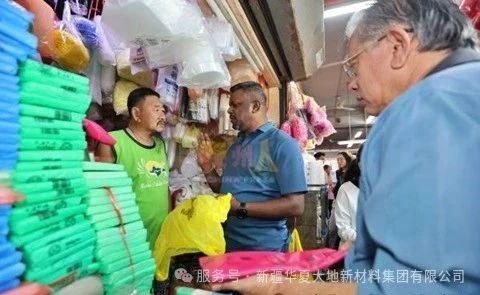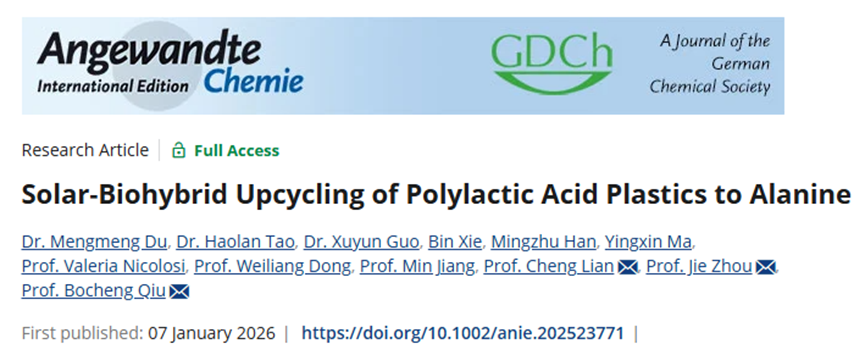On June 28th, Aruguma, an administrative councillor of the state of Semarang, stated that since local governments have given sufficient time, those merchants who have not complied with the regulations regarding the use of biodegradable plastic bags and who have received multiple warning notices will be subject to a fine of 250 Malaysian ringgit.
He said that regarding the environmental policy of banning disposable plastic bags in the state of Sen, the state government has given businesses sufficient time for adaptation and an extended period of transition. If businesses have received multiple warning notices but still refuse to comply, local authorities can take enforcement actions to accelerate the process of widespread use of eco-friendly bags.
"Over the past two years, the state government has carried out various publicity and educational activities and given businesses sufficient time to adapt. Now it is time to strengthen law enforcement to ensure that the plastic ban policy achieves practical results."
He said that since the implementation of the plastic bag ban policy, the authorities have issued over 200 warning notices, requiring businesses to comply with the business license terms and only use biodegradable plastic bags. For those businesses that still fail to comply, local governments can only take enforcement actions.
"Over the past two years, we have been conducting publicity and education campaigns to make businesses understand the significance of using biodegradable plastic bags. However, if some businesses still fail to comply with the regulations, it would be unfair to those businesses that have already followed the policy. Therefore, enforcement is imperative."
He calculated that as of now, approximately 70% of the merchants in Phu Rong Bus Terminal have switched to using biodegradable plastic bags, but overall, only about 30% of the merchants in Tsing Shan have truly carried out this transformation.
He said that the goal of the state government of Sen is to increase the proportion of businesses using biodegradable plastic bags to 50% by the end of this year, while large supermarkets have set a target of 100% usage.
He emphasized that these large supermarkets, having greater capabilities, should also take the lead in taking action and start using eco-friendly bags comprehensively from now on.

No plastic bags for customers
Aruguma emphasized that the state government of Sentosa not only prohibits merchants from using plastic bags, but also does not allow any merchant to sell plastic bags to customers at the price of 20 cents or 50 cents.
"We pushed this policy not because we wanted merchants to make profits from it, but because we truly hope that the environmental protection policy can be implemented."
He pointed out that if some merchants continue to sell plastic bags or charge for them, it will not only nullify the policy's effect but also be unfair to those merchants who have already complied with the regulations. Next, the authorities will enhance publicity while also conducting enforcement actions to ensure that all merchants abide by the regulations and jointly achieve the environmental protection goals.
Those present included Zhou Shiyang, a district councilor from Luobo District, Lin Junrong, a city councilor from Furong City, Guo Qisheng, an assistant city councilor, Deng Hanqiang, an assistant city councilor, Mu Gandara, the deputy secretary of the Action Party in Sen State, and Xu Lishuo, the chairman of the Furong City Farmers' Association.
Zhou Shiyang: Addressing the issue at its source will yield better results
State Assemblyman Zhou Shiyang from Luo Bai District pointed out that most of the plastic bags used by vendors at the Furong Bus Terminal are provided by 2 to 3 suppliers. Therefore, starting from the source and requiring suppliers to only supply biodegradable plastic bags will make it easier to regulate the use of plastic bags at the Furong Bus Terminal.
He said that in the past, suppliers had continued to supply traditional plastic bags under the pretext that they still had "old stock", but the state government had given them more than two years to make the transition. It is impossible for them to have endless stock left.
"If the supply chain can be effectively managed, it is believed that within the next six months, the proportion of using eco-friendly plastic bags by Furong Bus Station will definitely reach 90% or even 100%. At that time, there will no longer be any problems where non-compliant plastic bags cannot be implemented."
After distributing the environmental protection bags, Aruguma also visited various stalls in the Furong Bus Terminal and patiently explained to the vendors how to identify the biodegradable plastic bags that are only allowed to be provided.
He said that disposable plastic bags, oxo-degradable, oxo-biodegradable, photodegradable or photo-biodegradable plastic bags are not allowed to be used because the chemical components used in their production can damage the environment and even pose a threat to human health.








